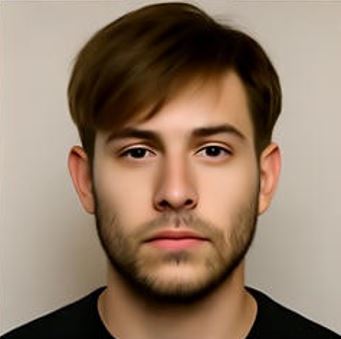Harvard researcher jailed for smuggling frog embryos
A Harvard researcher arrested for smuggling frog embryos remains in custody as she awaits bail. The case raises questions about political persecution.

Harvard researcher jailed for smuggling frog embryos
A US district judge in Vermont ruled that Ksenia Petrova, the Russian Harvard Medical School researcher accused of smuggling frog embryos could be released on bail from ICE custody. However, Petrova remains in custody pending an upcoming bail hearing on criminal charges, scheduled for next week.
Accusations and accusations
Petrova, 30, was arrested at Logan International Airport in Boston on February 16 and was being held by U.S. Immigration and Customs Enforcement. The bail hearing was held Wednesday in federal court in Burlington, Vermont, before Chief District Judge Christina Reiss, but Petrova attended via Zoom from a facility in Louisiana where she is being held.
Petrova is among many foreign scientists whose visas were revoked as part of a tightening of deportation policies under Trump. She is facing deportation to Russia, where her lawyers say she fears persecution because of her political activism against the war in Ukraine.
Defense claims
“Ms. Petrova has presented compelling evidence of inappropriate government conduct – including attempts to jail and punish her for a minor customs violation,” her lawyers wrote in a brief to the court. “Should she be arrested again by ICE, there is a significant and well-founded risk that she will be unlawfully deported to Russia – despite her prior political persecution there.”
According to the indictment, Petrova failed to declare the biological materials and lied to federal officials as she went through customs at the airport. During a search, officers found the banned materials, although Petrova said she had nothing of the sort on her. Messages were also found on Petrova's cell phone that showed she was warned by colleagues about the need to follow proper regulations when transporting materials.
Experiences in prison
"I was told that normally this would be punishable by a warning or a fine. Instead, my visa was revoked and I was sent to a deportation center in Louisiana, where I have spent the last three months with about 100 other women. We live in a room with dormitory-style beds," Petrova wrote in an essay published this month in the New York Times was published.
Additional charges
In an unusual escalation, Petrova, who has been fighting deportation proceedings since her arrest, was also arrested this month on serious charges Smuggling allegations charged in Massachusetts. Massachusetts U.S. Attorney Leah Foley said Petrova lied to officials about the presence of biological materials in her luggage.
“The rule of law is not an exception for educated people with appropriate backgrounds,” Foley said in a recorded video cutout. “The U.S. visa Ms. Petrova received, which was revoked by customs authorities because of her conduct, is a privilege, not a right.”
The way back to the laboratory
Although Petrova admits that she failed to declare the frog samples, her lawyer Gregory Romanovsky expressed that the incident at the airport should have been treated as a minor violation and should have been punished with a fine. Instead, her visa was immediately revoked and she was detained in what her lawyer describes as government overreach.
After the new charges emerged, a federal judge ordered Petrova transferred to Massachusetts. Her attorney filed a motion for habeas corpus and bail in Vermont, where she was held after her initial incarceration, before she was transferred to Louisiana. Court documents state that Justice Department lawyers argue that Petrova's bail requests should be deemed moot because she was transferred by ICE to the Richwood Correctional Facility in Monroe, Louisiana.
"Ms. Petrova is not in the direct custody of any of the defendants named in her original writ of habeas corpus, and her challenge to her prior immigration detention is moot," the government's lawyers wrote in the brief.
In their response, Petrova's lawyers accused the government of exaggerating the criminal charges to prevent her bail application and motions from being heard in federal court. "The government should not be encouraged to bring criminal charges against ICE detainees in order to undermine their writ of habeas corpus applications. This is particularly important because the government's position is that just being arrested on criminal charges - whether real or sham - would be enough to render an ICE detainee's writ of habeas corpus moot," Petrova's lawyers wrote.
Petrova is eager to get back to her lab, where she uses a unique microscope that performs the "almost impossible" task of measuring certain tissue samples without harming them. She called this development “completely revolutionary” – and one that could support research into diseases such as cancer and Alzheimer’s. "There is a data set that I am halfway through analyzing. I want to go home and finish it," Petrova wrote.

 Suche
Suche
 Mein Konto
Mein Konto
